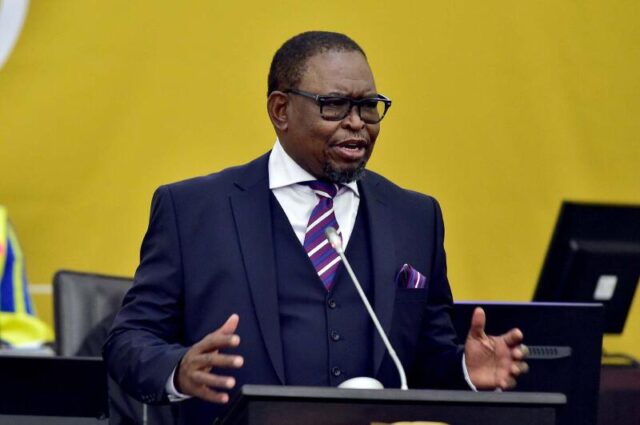Ahead of this week’s Budget, the United Nations Committee on the Rights of the Child has urged the government to spare children from budget cuts.
AHEAD of this week’s Budget, the United Nations Committee on the Rights of the Child (UNCRC) has urged the government to spare children from budget cuts.
The committee made the plea in its concluding observations issued earlier this month, following its meeting in Geneva with a South African government delegation to discuss progress in improving the lives of children in the country.
The committee, a body of 18 independent experts, monitors the implementation of the UN Convention on the Rights of the Child by the countries that have agreed to be bound by the convention.
All these countries (including South Africa) must submit regular reports to the Committee on the progress they have made in realising children’s rights and any challenges preventing progress.
The Children’s Institute (University of Cape Town) drew the committee’s attention to several urgent challenges, including the need for the government to budget in a way that prioritises the development and well-being of children.
The committee recommended that South Africa allocate adequate budgetary resources for the implementation of children’s rights, in particular the social sectors, and ensure that the sectors relevant for children’s rights are not affected by inflation, budget cuts or adverse economic conditions.
The Children’s Institute previously warned that recent budget decisions by the government had a negative impact on children.
These include annual inflation increases to the child support grants that are too small to prevent the value of the grant from shrinking compared to rising food prices.
It is also said that the value of the grant was too low to cover the cost of a child’s basic nutritional needs, the original purpose of the grant when it was introduced in 1998.
Another concern was cuts to the health budget that resulting in the freezing of posts for health workers, thus compromising children’s access to health-care services.
It is also said that non-profit organisations (NPOs) that provide child protection services were facing closure because provincial departments of Social Development were cutting NPO subsidies, or withdrawing them completely.
Provinces claim they have little choice as their budgets are being cut, on top of which they must find money to pay for wage increases for public servants thanks to a deal made by national government.
The institute added that the lack of inflation-related increases for the past five years to the per child subsidies paid by the provincial departments of Education to NPOs providing early learning programmes for children was a great concern.
The UN Committee emphasised that the government should take urgent measures to improve the realisation of children’s rights in particular areas. The topics and recommendations included that the principle of the best interests of the child should be appropriately integrated in all decisions impacting children, including decisions on resource allocation made by the economic sector.
To address child hunger, the government should allocate adequate resources to the social assistance programme and health services, it said.
Government should also address discrimination against children who don’t have identity documents. To remove barriers to the registration of child births, the committee recommended several steps, including increasing the number and reach of mobile registration units for children born in rural areas.
The committee added that the government should provide sufficient human, technical and financial resources to expand the access, coverage and quality of universal health care for children across the country. This includes a strong focus on closing the gaps in immunisation, nutrition, HIV, mental health, and adolescent sexual and reproductive services.
It also called on the government to address the unequal allocation of resources to rural and urban areas, and the “underfunding” of protection programmes.
The committee called on South Africa to allocate enough resources for programmes and initiatives aimed at protecting children from all forms of violence, abuse and neglect, and to invest in programmes to make the ban on corporal punishment a reality.
In regards to early childhood development, the UN Committee urged the government to invest in making it possible for children to develop and thrive. Only then can the cycle of poverty and inequality which continues from generation to generation, be broken, it said.








